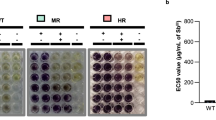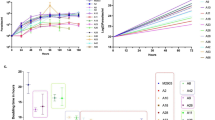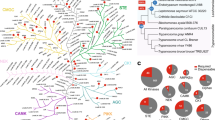Abstract
Leishmania exhibit many unusual features, one of which is the pteridine metabolic pathway essential for the growth for these parasites. Leishmania have evolved a complex and versatile pteridine salvage network capable of scavenging a wide array of conjugated and unconjugated pteridines. The L. major PTR1 gene was cloned into pcDNA3 digested with KpnI and BamHI. The gene was cloned antiparallel to the promoter and named pcDNA-Rptr. L. major promastigotes were divided into two groups. One group was transfected with 50 &x03BC;g of pcDNA-Rptr, whereas the other group was electroporated with pcDNA3. Mentioned cells were cultured and plated onto semi-solid media.Western blotting was performed on extracts from transfected promastigotes of L. major using an leishmania major PTR1 antibody. The PTR1 protein was not expressed in pcDNA-Rptr-tansfected promastigotes, 'Our results indicate that our system may be useful for studying the pteridine salvage pathway in Leishmania as a possible drug target.
Similar content being viewed by others
Article PDF
Author information
Authors and Affiliations
Corresponding author
Rights and permissions
About this article
Cite this article
Kheirandish, F., Bandehpour, M., Davoudi, N. et al. Inhibition of pteridine reductase 1 (PTR1) expression in Leishmania promastigotes using a full-length antisense construct. Nat Prec (2009). https://doi.org/10.1038/npre.2009.2807.1
Received:
Accepted:
Published:
DOI: https://doi.org/10.1038/npre.2009.2807.1



